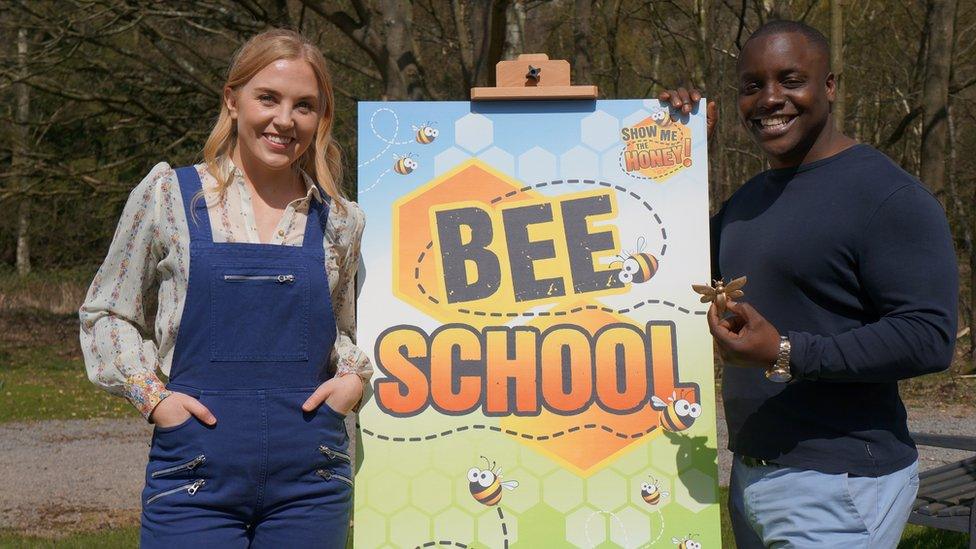Show Me the Honey: New CÂ鶹ԼÅÄ show about beekeeping starts
- Published
- comments

Maddie and Curtis teach the contestants lots of fun facts about bees
There's a buzz at CÂ鶹ԼÅÄ about a new programme called Show Me the Honey which starts on 30 September.
Amateur beekeepers are competing to be crowned Beekeeper Of The Year by producing the tastiest honey.
Maddie Moate hosts the show which follows four families in their beekeeping journey and professional beekeeper Curtis Thompson is there to help out.
The contestants will learn lots of fun facts at bee school and have to complete challenges each week, including designing a bee hive and planting a pollen paradise, in order to win a golden bee to add to their bee hive.
Bees see ultraviolet waves, so their colours look different to our colours. They can't see the colour red - it looks black to them!
Garden bumblebees have the longest tongue of all UK bees and at a stretch it can reach just over 2cm.
Bees maintain a temperature of between 32 and 35 degrees Celsius in their hive, which they do by flapping their wings very quickly for warmth or flapping their wings at the entrance to the hive to cool it down.
Why are bees so important?
Maddie used to keep bees herself when she was growing up and says they are really important insects.
We all love honey and bees are vital to our eco-system, now more than ever. With green fingers and sticky hands we want to inspire the next generation of eco-conscious youngsters to get outside, support our precious pollinators and maybe even encourage them to try their hand at beekeeping with a local expert."
Curtis is there to help the young beekeepers out with his expert tips
The contestants are from different areas around the UK so they have different environments which affect the honey their bees make.
Curtis: "Honey produced in an inner-city environment, which tends to have high variety of flowers, will taste very different from a countryside honey where the bees may have been exclusively visiting one crop such as heather. So it will be interesting to see who comes out on top - the city, suburban or countryside teams?"
Did you know there are lots of different types of bee such as honey, bumble and solitary? Try our quiz to find out which type of bee you would be.
- Published29 April 2020
- Published20 May
- Published19 May 2020
